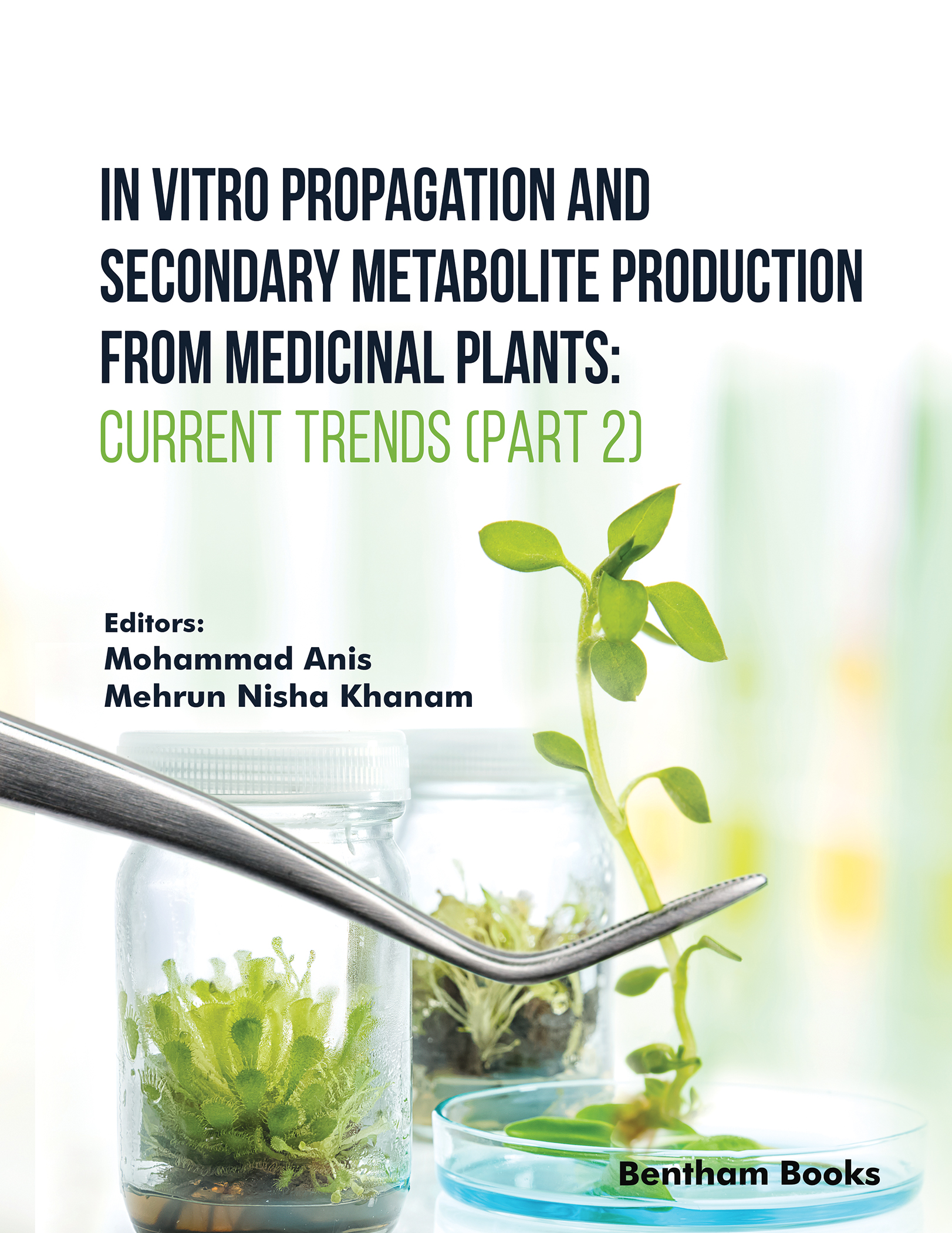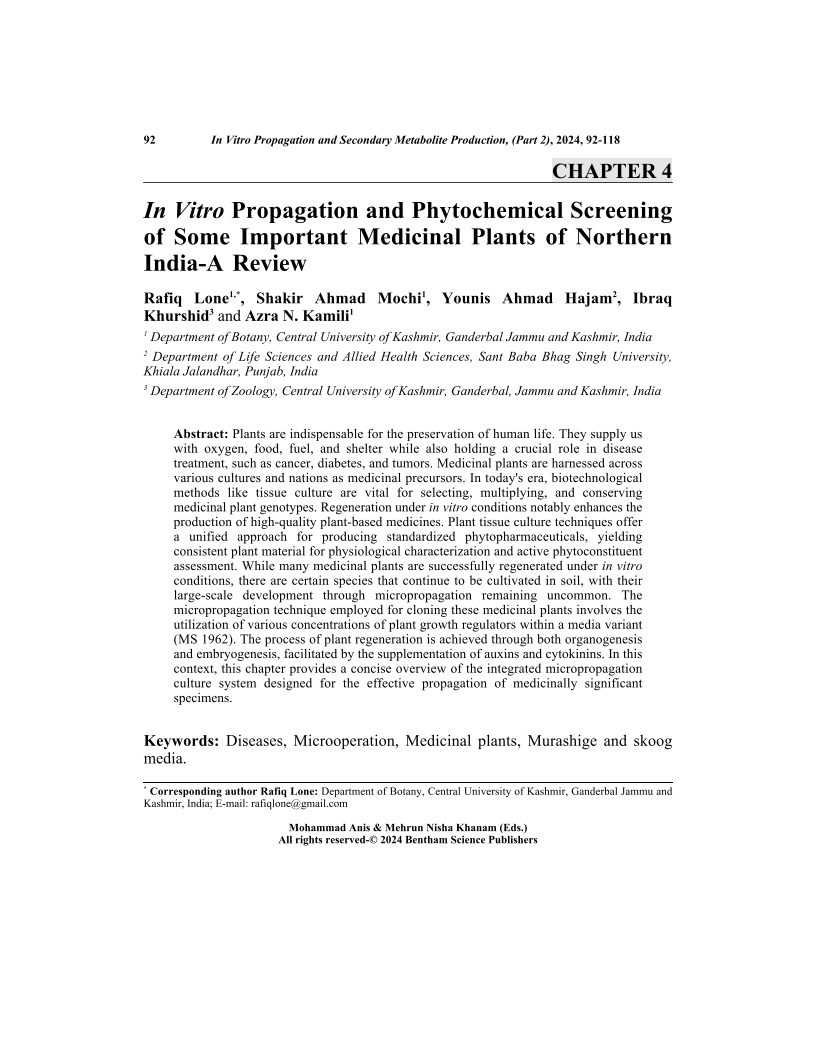In Vitro Propagation and Phytochemical Screening of Some Important Medicinal Plants of Northern India-A Review

- Authors: Rafiq Lone1, Shakir Ahmad Mochi2, Younis Ahmad Hajam3, Ibraq Khurshid4, Azra N. Kamili5
-
View Affiliations Hide Affiliations1 Department of Botany, Central University of Kashmir, Ganderbal Jammu and Kashmir, India 2 Department of Botany, Central University of Kashmir, Ganderbal Jammu and Kashmir, India 3 Department of Life Sciences and Allied Health Sciences, Sant Baba Bhag Singh University, Khiala Jalandhar, Punjab, India 4 Department of Zoology, Central University of Kashmir, Ganderbal, Jammu and Kashmir, India 5 Department of Botany, Central University of Kashmir, Ganderbal Jammu and Kashmir, India
- Source: In Vitro Propagation and Secondary Metabolite Production from Medicinal Plants: Current Trends (Part 2) , pp 92-118
- Publication Date: April 2024
- Language: English
In Vitro Propagation and Phytochemical Screening of Some Important Medicinal Plants of Northern India-A Review, Page 1 of 1
< Previous page | Next page > /docserver/preview/fulltext/9789815196351/chapter-4-1.gif
Plants are indispensable for the preservation of human life. They supply us with oxygen, food, fuel, and shelter while also holding a crucial role in disease treatment, such as cancer, diabetes, and tumors. Medicinal plants are harnessed across various cultures and nations as medicinal precursors. In today's era, biotechnological methods like tissue culture are vital for selecting, multiplying, and conserving medicinal plant genotypes. Regeneration under in vitro conditions notably enhances the production of high-quality plant-based medicines. Plant tissue culture techniques offer a unified approach for producing standardized phytopharmaceuticals, yielding consistent plant material for physiological characterization and active phytoconstituent assessment. While many medicinal plants are successfully regenerated under in vitro conditions, there are certain species that continue to be cultivated in soil, with their large-scale development through micropropagation remaining uncommon. The micropropagation technique employed for cloning these medicinal plants involves the utilization of various concentrations of plant growth regulators within a media variant (MS 1962). The process of plant regeneration is achieved through both organogenesis and embryogenesis, facilitated by the supplementation of auxins and cytokinins. In this context, this chapter provides a concise overview of the integrated micropropagation culture system designed for the effective propagation of medicinally significant specimens.
-
From This Site
/content/books/9789815196351.chapter-4dcterms_subject,pub_keyword-contentType:Journal -contentType:Figure -contentType:Table -contentType:SupplementaryData105

